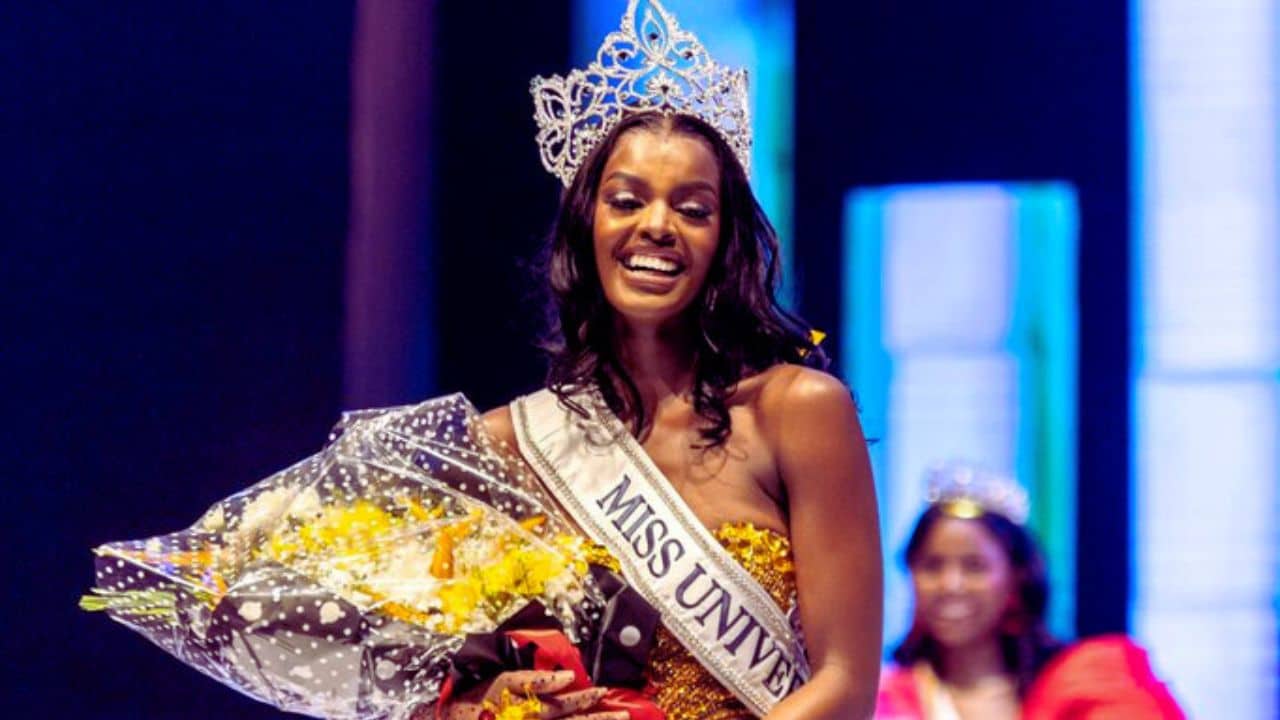On a Saturday night filled with excitement and anticipation, 23-year-old Chidimma Adetshina, a law student with dreams as big as her smile, was crowned Miss Universe Nigeria in Lagos. This crowning moment was more than just a victory in a beauty pageant; it was a culmination of a journey fraught with controversy, challenges, and an intense public debate that spanned continents. The drama surrounding her eligibility, however, was not rooted in her home country of Nigeria but rather in South Africa, where Adetshina had been competing for a different title.
The South African Controversy
Chidimma Adetshina’s journey to the Miss Universe Nigeria stage began in an entirely different arena—the Miss South Africa beauty pageant. Here, Adetshina found herself at the center of a storm when questions arose about her eligibility to compete. The rules for Miss South Africa are clear: contestants must be South African citizens, a requirement that generally entails being born in South Africa to at least one parent who is a citizen or a permanent resident.
Adetshina, in interviews and public statements, shared her background, explaining that she was born in Soweto, a vibrant township in Johannesburg known for its rich history and cultural significance. Her father is Nigerian, while her mother is South African with roots in Mozambique. Adetshina’s upbringing in Cape Town further cemented her connection to South Africa, a country she considered home. Yet, this mixed heritage became the focal point of a heated debate, with critics questioning her South African identity.
The Accusations and Their Fallout
The situation quickly escalated as Adetshina became the target of harsh criticism, much of which was labeled by observers as xenophobic. Unfortunately, she was not the first contestant to face such attacks in the South African pageant circuit. The scrutiny she faced was intense, with social media platforms buzzing with accusations and negative comments. Many of these comments were rooted in the broader societal tensions around nationality and identity in South Africa.
Initially, the organizers of Miss South Africa stood by Adetshina, defending her right to compete. However, as the controversy grew, it caught the attention of South Africa’s Department of Home Affairs, a government body responsible for matters of citizenship and residency. The issue gained further traction when South Africa’s Minister for Sports, Art, and Culture publicly weighed in on the matter. The minister’s tweet, which stated, “We truly cannot have Nigerians compete in our Miss SA competition,” added fuel to the fire. He went on to express his discomfort with Adetshina’s participation, stating that it gave him “funny vibes.”
Adetshina, who had been participating in the pageant with pride, found herself under immense pressure. In an emotional interview with *Soweto Live*, she expressed her heartbreak over the situation. “I am representing a country, but I don’t feel the love from the people I’m representing,” she said, highlighting the pain of feeling ostracized by the very nation she sought to represent.
The Investigation and the Aftermath
As the controversy continued to swirl, a preliminary investigation was launched into Adetshina’s background. The investigation centered on her mother’s identity and the possibility that she may have committed “identity theft” to secure South African citizenship. This revelation added another layer of complexity to the situation. However, the investigation cleared Adetshina herself of any wrongdoing, noting that she was only an infant at the time these alleged actions took place. This finding brought some relief, but the damage to Adetshina’s public image and her sense of belonging had already been done.
By early August, Adetshina made the difficult decision to withdraw from the Miss South Africa competition. Her withdrawal was a significant moment, not only for her but also for the broader conversation about identity and belonging in South Africa. In her statement on Instagram, Adetshina explained that she was stepping down from the competition for the “safety and wellbeing of my family and I.” Her decision highlighted the personal toll that the public scrutiny had taken on her and her loved ones.
A New Chapter in Nigeria
Just as one door closed, another opened for Adetshina. A day after her withdrawal from Miss South Africa, she received an invitation from the organizers of the Miss Universe Nigeria pageant. The invitation was a lifeline, offering her a fresh start and an opportunity to represent her Nigerian heritage on an international stage. However, even this new opportunity was not without its challenges. Some critics in Nigeria questioned her sudden entry into the competition, but Adetshina remained undeterred.
With determination and grace, Adetshina entered the Miss Universe Nigeria competition. Despite the criticism and the challenges she had faced in South Africa, she stayed focused on her goal. Her resilience paid off when she was crowned Miss Universe Nigeria, earning her the chance to represent Nigeria at the Miss Universe pageant in Mexico City this November. This victory was not just a personal achievement but a symbol of her strength and perseverance.
The Road Ahead
Adetshina’s journey to the Miss Universe stage will be closely watched, not only by her supporters in Nigeria but also by those who followed her story in South Africa. Among her competitors in Mexico City will be Mia le Roux, a 28-year-old South African who recently made history as the first deaf woman to win the Miss South Africa title. The stage is set for a global competition that will showcase beauty, talent, and the diverse backgrounds of women from around the world.
Chidimma Adetshina’s story is a powerful narrative of resilience in the face of adversity. Her journey from being a contestant in South Africa to being crowned Miss Universe Nigeria is a testament to her courage and determination. As she prepares to compete on the international stage in Mexico City, Adetshina’s experience serves as a poignant reminder of the complexities of identity and the challenges that can arise when national pride intersects with personal heritage. Her story resonates with anyone who has ever faced obstacles on their path to success, proving that with strength and perseverance, it is possible to overcome even the most daunting challenges.



































